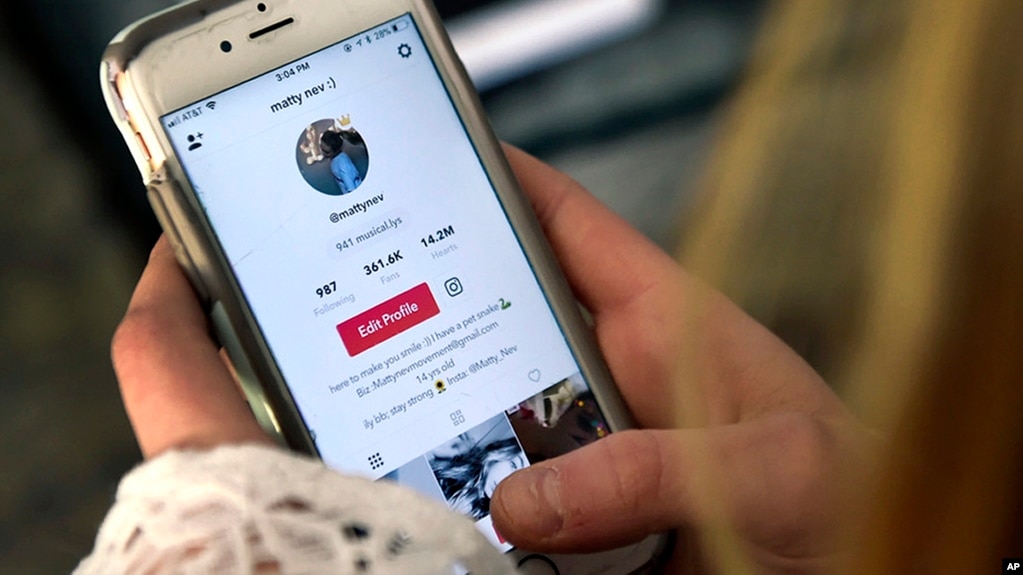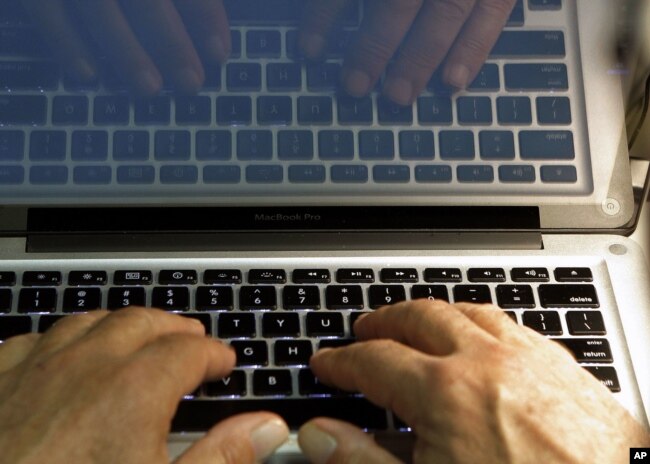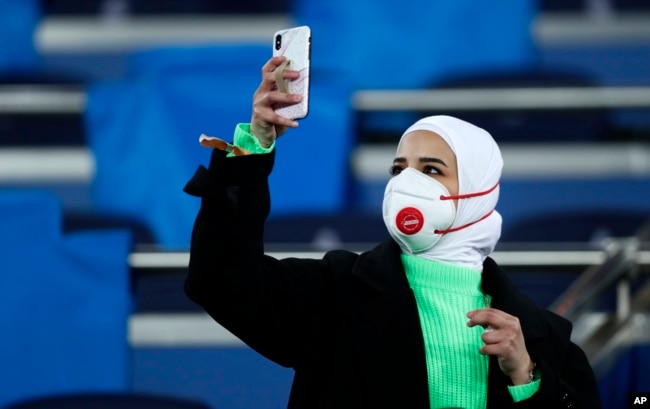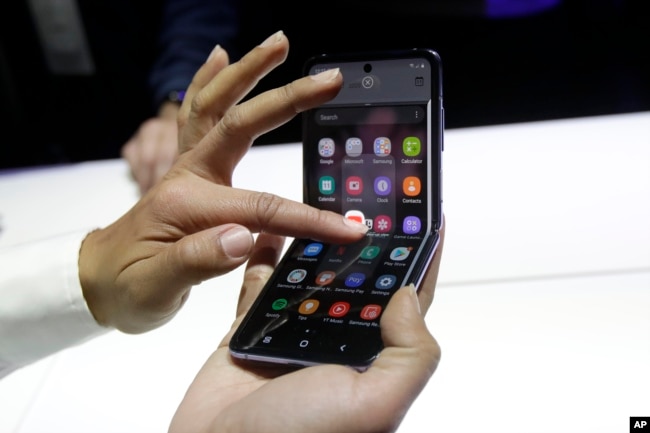
In this Feb. 28, 2018 photo, a person logs into the smartphone app Musical.ly, now known as TikTok, in Wethersfield, Conn. (AP Photo/Jessica Hill, File)
You have been told to wash your hands many times a day to help stop the spread of the new coronavirus. You have been told to avoid touching your face.
But, you also should try to keep clean the device that you may be using now more than ever – your phone.
Scientific studies have shown that the virus can live for two to three days on materials like plastic and stainless steel.
The U.S. Centers for Disease Control and Prevention recommends cleaning all “high-touch” surfaces every day. These include things we touch and come into contact will all day long, like phones, keyboards and computers.

FILE - In this Feb. 27, 2013, file photo illustration, hands type on a computer keyboard in Los Angeles.
But it is important to be careful. If you do not clean your phone in the right way, it can get damaged.
Here are some things not to do when disinfecting your phone:
· Do not spray cleaners directly on the phone.
· Do not put the phone into any cleaning liquids.
· Do not use devices that use forced air, which are often used to clean computer keyboards
· Avoid rubbing your phone with rough materials that could make small cuts on it.

So, what should you do? Start by turning off the phone and unplugging any wires. You want to make sure your phone is not charging when you clean it.
Below are some suggested ways to clean your phone. With any of these suggestions, be sure not to get the phone wet.
You can use Clorox wipes or wipes with 70 percent alcohol. You can buy these products at a store and wipe down your phone. iPhone manufacturer Apple has warned against using household cleaners on its phones, and says that when using wipes, do so “gently.”
AT&T recommends pushing out any liquid from disinfectant wipes before using them on a phone. It says paper cloths work too. You can spray them with disinfectant and then use the cloth to clean the phone. Again, do not spray the phone itself.
You can also use a soft fabric to clean the phone. Some examples are microfiber cleaning cloths or ones used to clean camera lenses and eyeglasses.
Google suggests cleaning your phone with a cloth that has been lightly covered in soap and water, as long as you are careful not to get moisture in the phone.

A Samsung worker gives a demonstration of the Galaxy Z Flip Phone at the Unpacked 2020 event in San Francisco, Tuesday, Feb. 11, 2020. (AP Photo/Jeff Chiu)
Samsung, the world’s biggest phone manufacturer, says it is offering something new: A free phone-sanitizing service involving UV light. The service will be offered at some U.S.-based Samsung stores and service centers. It will expand to other countries in the coming weeks.
Cleaning your phone is one of many measures public health officials are recommending to try to slow the spread of the new coronavirus. Most patients experience only mild or moderate sickness. However, older people and those with existing health conditions are more likely to develop more severe illness.
I’m Ashley Thompson.
Tali Arbel wrote this story for the Associated Press. Anne Ball wrote it for VOA Learning English. Ashley Thompson was the editor.
How are you keeping away from coronavirus germs? We want to hear from you. Write to us in the Comments Section.
___________________________________________________________
Words in This Story
keyboard – n. the set of keys that are used for a computer or typewriter
moisture – n. a small amount of a liquid, like water that makes something wet or moist
spray – n. liquid that is forced out of a container in a stream of very small drops
unplug – v. to disconnect something, like a phone or television from an electrical source by removing its plug
wipe – n. a small wet cloth used for cleaning
disinfectant – n. a chemical substance that is used to kill harmful germs and bacteria
microfiber – n. cloth made from very small synthetic fibers
Comprehension Quiz
Who are more likely to develop more severe illness?